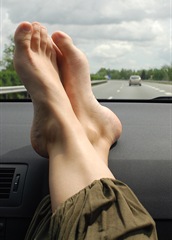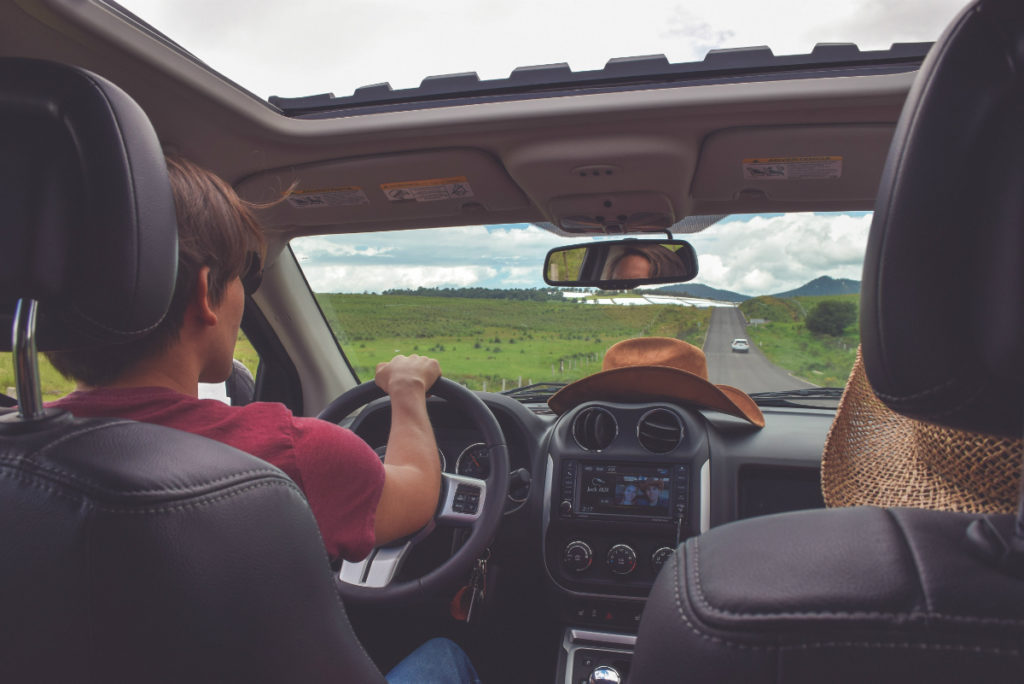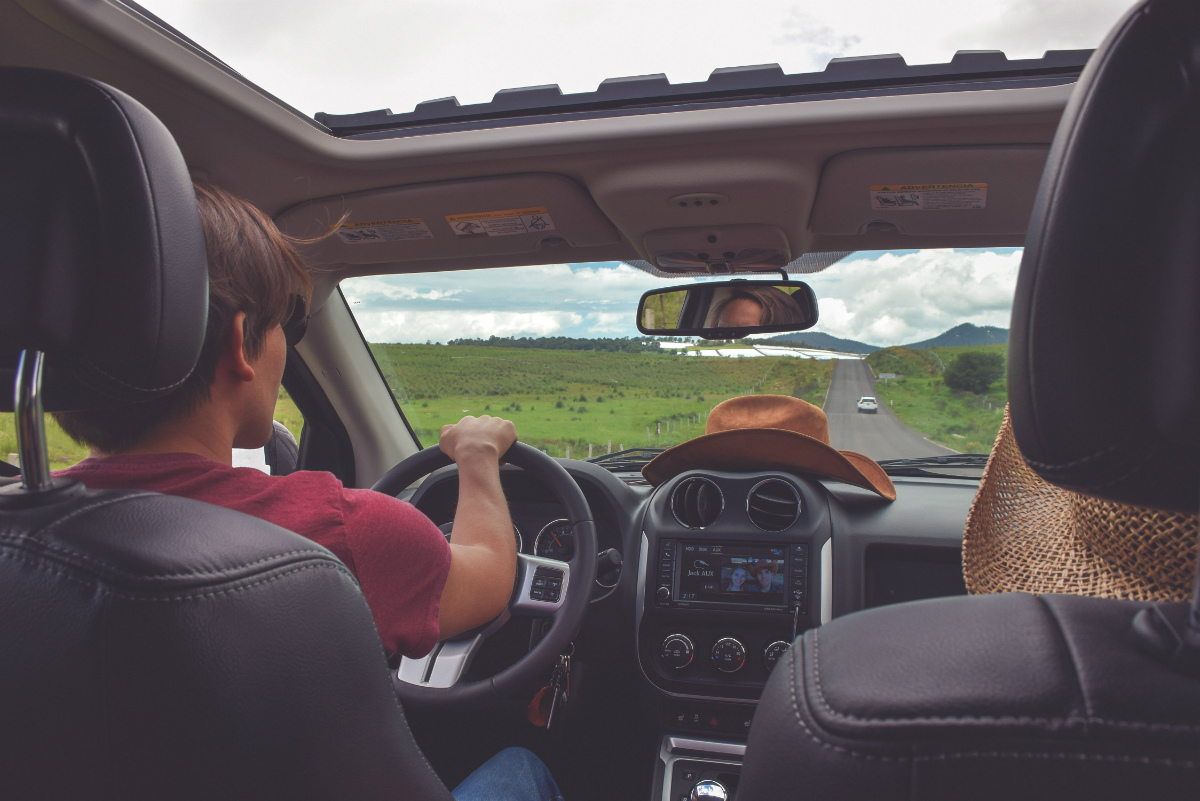Road tripping across Canada isn’t for everyone. Some will prefer to travel by bus. Others by plane. And the real die-hards may even choose hitch hiking. But depending on how many destinations you’re planning on seeing, and how long you plan on travelling, buying a cheap car may not be all that crazy. Driving across Canada is long. Very long. (100-120 hours to drive from West coast to East coast) But the freedom you have with owning your own vehicle is immense. Not only that, but if the vehicle survives the road trip, you can actually make some of your money back. First things first.
Others by plane. And the real die-hards may even choose hitch hiking. But depending on how many destinations you’re planning on seeing, and how long you plan on travelling, buying a cheap car may not be all that crazy. Driving across Canada is long. Very long. (100-120 hours to drive from West coast to East coast) But the freedom you have with owning your own vehicle is immense. Not only that, but if the vehicle survives the road trip, you can actually make some of your money back. First things first.
Finding your wheels
There are countless resources available to help you find a vehicle.
- Grab a local newspaper – check the classified section. You’re bound to find countless vehicles for sale in there.
- Check bulletin boards – Most hostels have bulletin boards with vehicles for sale
- Autotrader.ca – This website lists vehicles for sale all over Canada, search by make, model, year, cost, and location
- UsedVancouver.com or UsedToronto.com – or other used”cityname”.com – An online sales site where you can find anything from used desks, beds, and even Vehicles
Keep in mind however, buying privately can save you money (especially if marked o.b.o “or best offer”) – Feel free to try and get them to lower their price, but once the vehicle is out of their hands, they aren’t held liable for anything wrong with the vehicle. You are buying it “as is” – Where as if you buy through a used dealer, at least you have someone to call up and yell at if your vehicle dies a week after you bought it.
Licence, Registration, and Insurance
You might be wondering how legal it is for someone from outside of the country to buy a vehicle, and drive the sucker. Especially if you’ve never driven on the right hand side of the road. Well you should be happy to hear that it is very legal. So long as you have your licence in your home country, you are eligible to drive in Canada for up to one year. If you do happen to have a run in with the RCMP or local police due to speeding or some other traffic violation, you’ll want to be sure you can show them your licence and vehicle registration, and maybe even your passport. Another thing worth considering is signing up for an international drivers permit. There’s no formal test or anything, you just send some money to them and they send you a card which is more or less a “global drivers licence” – although this isn’t necessary. Read more into it at CAA Website.
As soon as you buy a vehicle you’re going to need proof of purchase, normally the registration papers and a ‘Bill of Sale’ with the VIN (Vehicle Identification Number) and the sellers and buyers signature. You’ll also need the cost of the sale on the bill of sale. (Under $2000 will normally exempt you from paying taxes when done privately) Once you’ve got the bill and papers in order you can head to a local insurer to get some license plates, the registration put in your name, and of coarse the insurance. In Canada basic auto insurance is mandatory. Some Canadian provinces provide public auto insurance (British Columbia, Saskatchewan, Manitoba, and Quebec) which is normally a lot cheaper. While the private insurance in the other provinces jack up the prices. So keep that in mind when buying a vehicle.

Vehicle Roadworthiness
Just because you found a sweet ride that’s in your budget, doesn’t mean its going to survive the long hours of driving at highway speeds. Before buying any vehicle, especially one you plan on travelling across Canada, there are a few things to check for.
- Tire tread – Watch for real bald tires
- Colour of exhaust fumes – Black = Burning oil
- Oil levels – Check the dipstick prior to buying
- Coolant levels – If coolants low the engines been running hot, that’s bad.
- Headlights – Low & High – Make sure both are working, you’ll need them.
- Turn signals / Hazard lights – You’ll be using these, make sure they work.
- Breaks – Test their responsiveness, listen for grinding sounds. That’s bad.
- Kilometres – Be realistic, old vehicles have lots. But 250,000+km’s…Bad.
- Leaks – check pavement where car has been parked
- Loose belts – Check how loose the belts are, look for cracks too.
- Spare tire / Wheel wrench / jack – Make sure the vehicle has these.
If all checks out you may have found your vehicle. If you suspect anything el
se needs to be looked over, take it into a mechanic, this will cost you, but sometimes a good tune up is all a car needs. Might save you money and headaches down the road.
You might also want to buy an emergency kit for your car, just in case you end up stranded on the highway far from any towns. A basic emergency kit for your car should include:
- Jumper wires
- Tire sealer-inflator can
- Tire gauge
- Couple of rags and work glows
- Flashlight
- Simple tool kit with screwdrivers, pliers and set of most common sockets.
- Consider also a spare headlight bulb and a couple of fuses, bottles of engine oil, windshield washer fluid and antifreeze, an emergency stop sign or flares, a duct tape, an electrical tape, spare ignition key, etc.
- Don’t forget your personal emergency kit with First Aid kit and items like a blanket, a bottle of water, couple of energy bars, etc.
Cost of fuel
You’re bound to hear it while you’re in North America. People love to complain about rising gas prices. It’s on the news. At the supermarket. In the bars. But considering how much you may have been paying for gas back home, you may find gas surprisingly cheap. It usually hovers around a dollar per litre. That’s a loonie per
litre people. It’s not that bad. Check out Gasbuddy to find out gas prices around Canada.
Depending how bad your vehicle is on gas, you’re going to need to do quite a bit of filling up along the way. So any help you can get with gas is usually worth it. Leave a post on the hostels bulletin board, informing people where you’re going, and when you’ll get there. Let them know they can join if they pitch in for gas. This can cut costs quite a bit, especially if you’ve got the room. Although you may end up stuck with someone who’s less than fun to be around. Which is why I normally suggest posting only for shorter haul trips. Vancouver to Calgary for example, 10 hours of driving. Then just find somebody new in Calgary if you need to. If you’re not having much luck finding anyone to join, try eRideShare – an online service that connects drivers with joiners.
Driving on the Right Hand Side
If I can learn how to drive on the left, anyone can learn to drive on the right. It’s not really that different. The only problems I found when switching sides was parking. (I tended to look in the wrong direction for traffic coming, it almost got me in trouble a couple times) Just remember to pay attention at all times, try practicing if possible. Give yourself a day or two of training in quiet residential areas, then work your way up to more busier streets. If you were worried at all about roundabouts you’ll be happy to hear there are very few of them in Canada. Maybe 3. Most of North American traffic is controlled by Traffic Lights & 4 Way Stops.
If you’ve got time on your hands, and want to go over the Canadian Rules of the Road, read SGI’s Drivers Handbook – this book goes into everything from Traffic Signs to driving laws. Definitely worth skimming through.
Freedom Camping
One of the great things about owning your own vehicle in Canada, is how easy it can turn into accommodation for the night. Although it’s not always legal, even if you get caught, the most you’re looking at is a small parking fine, normally the cops will just tell you to take off. It’s just a matter of finding somewhere to park where you’re not bothering people, and they’re not bothering you. Truck stops are always fair game, but then there’s the fact that they’re probably the creepiest places to sleep. Parking lots, beaches, parks, and even quiet residential streets are usually the safest places to check out. Just be quiet, and respectful. Getting wasted in your van outside of some poor fellows house may not be the smartest idea.
If being on the lookout 24/7 and worrying who you may be bothering isn’t for you, just grab a campsite. It’ll cost you roughly $25 split between a couple people. Plus you have access to toilets and facilities. Which is always much more comfy than squatting on Mr. Hendersons front lawn.
Winter driving
If you’re not used to driving in the icy road conditions, there are a few things you should know.
- Tap the breaks – When slowing down for a stop sign or anything really, tap the brakes, if your wheels lock and you’re still going fast, you’re going to keep sliding, so tap them until you come to a stop.
- Keep your tank half full – If you do end up stuck in a whiteout, you’re going to want to keep warm, stay in the car, keep the engine running and the heat on. Just remember to keep the window open a crack, carbon monoxide poisoning in situations like this kills several people a year.
- Keep a safe distance between you and the car ahead of you, the icier it is, the more distance you should leave. If he slams on the breaks, you don’t want to go sliding into him.
- When passing snowploughs be extremely careful. Do it slowly.
- Avoid driving in extremely icy conditions. If there was recently freezing rain, stay off the roads.
- Take everything slowly, slow starts, slow stops, slow turns, you name it. Nobody will mind, you won’t look strange doing it, everybody does it. Those who don’t can usually be found in the ditch.
- Get a window scraper – Scrape all your windows before driving. Not a tiny hole in the windshield. You need to see what’s going on around you.
- Practice – If you’re worried you’ll end up hurting yourself or someone else, go practice in an empty parking lot or on some quiet streets.
Repairing your vehicle
Before you set off on your next leg of your road trip be sure to check over your vehicle. Check fluid levels, tire treads, tire pressure, etc. If however, your vehicle does decide to die on you, there are a few things you should know. First off, write these numbers down, or save them in your phone. Call 1-800-CAA-HELP/1-800-222-4357 OR *222 on your mobile phone. Should you ever be stranded, and need a tow to a mechanic, call these guys. Ask them how much it’s going to cost you to get your vehicle to the closest shop. They should know.
Finding a mechanic in a city you’ve never been isn’t always the most fun way to spend a Tuesday afternoon. A few things to note should you need to find one.
- Speak to CAA – if they helped tow you, they should be able to help you find a mechanic
- Call 0 on any touchtone phone to speak to the local operator, or 00 for long distance operator. They should be able to help out as well.
- The Yellow Pages – Any public payphone should have a phonebook as well (so long as it hasn’t been stolen or torn to pieces) – A quick check under automotive or mechanic should bring up several businesses willing to take your money.
- If you can make it to a gas station, sometimes you’ll luck out and find a helping hand from either the station attendants or just a caring citizen willing to help out. Remember you’re in Canada, we’re rarely in a hurry, and most of us have had a car die before. We’re an empathetic country.
Selling your car after the trip
So you’ve managed to pull it off. Saw as many things as possible, all the while keeping your car in a worthy condition. Selling it is very similar to the buying process. The only thing is that you’re going to have lower your expectations. Especially if you don’t have a lot of time to sell it. Just because you paid $1500 on a vehicle doesn’t mean you can sell it for that. Be realistic. If you put a few thousand kilometres on it, and you sell it for even half of what you paid, you ended up covering transport costs for
just over $700. That’s roughly the cost of a round trip ticket inside Canada. Just be sure you give yourself plenty of time to sell it. At least 2 weeks. Three to be safe.
Make up a poster with the vehicle details on it. Make sure you’ve got a picture or two as well. Post it everywhere you can think of. Coffee shops. Bulletin Boards. Hostels. Put out some online posts, be sure to post via Autotrader.ca – and UsedToronto.com – and Kijiji – the more people who see it, the more likely you’ll get it off your hands.
What happens if you can’t sell it? Well, you’ve got a couple options. Take it to a scrap yard, they’ll give you a few hundred dollars at least for it. Or you can always give it to somebody. If you explain to a fellow backpacker that you’re leaving right away and need this off your hands, I’m sure they’ll be more than happy to take it. You could even try asking for a couple hundred dollars. It’s up to you.
When it’s all said and done, whether you make money, or lose money off your vehicle, just remember that if you had spent that money on a bus trip, or a flight, you don’t receive any money back. There are no refunds. Buying a vehicle is kind of nice that way. You might get some money back. If buying a vehicle is the right thing for you, I suggest you start thinking of what you’re going to name it…
